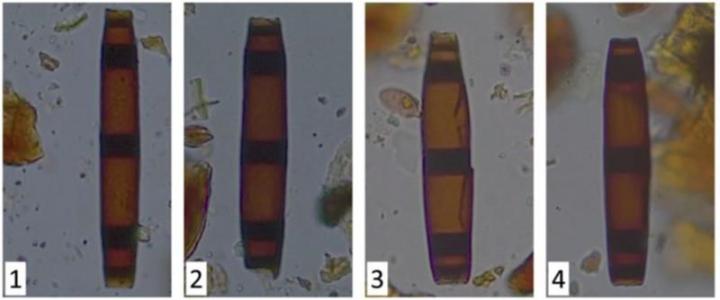Research project will explore impact of global warming on fungi species

Credit: Dr Matthew Pound, Northumbria University
Scientists from universities in the UK, US and Argentina are joining forces in a $1m research project to discover what impact an increase in global temperatures could have on the millions of species of fungi around the world.
Fungi play an important role in controlling the amount of carbon in the atmosphere, with some species absorbing carbon while others release it, meaning they could potentially help or hinder efforts to control global warming.
Now researchers from Northumbria University, in Newcastle upon Tyne; Morehead State University, in Kentucky; Louisiana State University in Louisiana; and CONICET in Argentina, will examine fossilised fungi from a period of global warming which occurred between 15 and 17 million years ago.
They hope discovering more about how these fungi reacted to higher global temperatures in the past will allow us to forecast what impact predicted rises in the current global temperature could have on present day species.
The research, which has been jointly funded by the National Science Foundation in the US and the Natural Environment Research Council (NERC) in the UK, will take place over the next three years and will involve examining microfossils from around the world, including the United States, Peru, Argentina, Malaysia, China, Antarctica, South Africa, Australia and Slovakia.
The study is the first of its kind and combines the palaeoclimate and data synthesis expertise of Dr Matthew Pound of Northumbria University, with the fossil fungi expertise of Professor Jen O’Keefe of Morehead State University.
Speaking about the importance of the research, Dr Pound said: “Understanding how fungi respond to past warm climates is fundamental to knowing how they might respond to 21st Century climate change.
“As an essential part of the carbon cycle, and common pathogens to many of the world’s crops, how individual species might change their geographical range and how fungal communities might change is valuable information if we are to adapt to current and future warming.”
Dr O’Keefe added: “I’m delighted to have this opportunity to showcase the talents of MSU’s undergraduates while studying a vital piece of the global change puzzle: how will fungi, both foundation and the bane of much of our food chain, react to changing conditions.”
Working alongside Dr Pound and Prof O’Keefe are Professor Sophie Warny, of Louisiana State University, and Dr Noelia Nuñez Otaño, from the Laboratory of Plains Geology in Diamante, Argentina, who will provide information on global fungal distribution patterns before, during, and after a period of geologic time known as the Middle Miocene Climatic Optimum (MMCO).
The MMCO is a pronounced global warming event that occurred 15 to 17 million years ago. The exact cause of the warming is still unknown, but massive volcanic eruptions in the Rocky Mountains and the carbon dioxide released from these is one potential cause.
The data will be used to model fungal community and ecosystem responses to changing environments.
There are an estimated three million species of fungi in existence, although only around 120,000 species have been officially discovered and recorded. Most fungi species live on decaying plants or animals and are too small to be seen by the human eye.
The three-year project is entitled ‘Fungi in a Warmer World’ and has been funded through collaborative research grants of $646,855 (£499,210) from the National Science Foundation (NSF) Directorate for Geoscience (GEO) and $376,988 (£299,947) from the Natural Environment Research Council (NERC).
###
Media Contact
Kelly Elliott
[email protected]
Original Source
https:/




